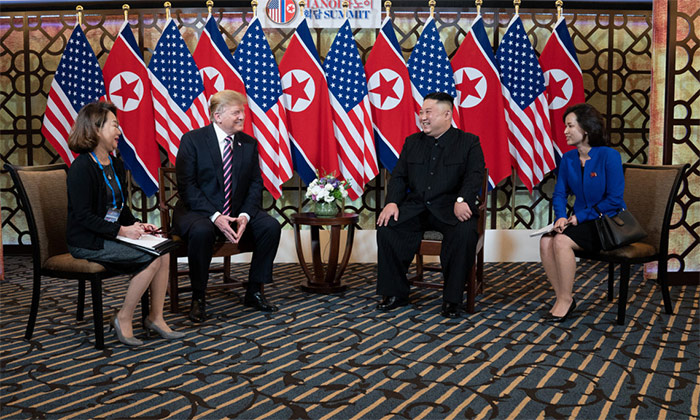“Even with no outcomes from the Hanoi Summit between Trump and Kim, peace talks still have value”, says Susi Snyder of PAX. With a starting point of “all or nothing” it is not very surprising that the talks ended early with no agreement.
The ongoing process regarding Korea has the two dimensions of peace and nuclear disarmament, and to achieve significant progress all parties needed to prepare to make compromises. That did not seem to be the case.
Akira Kawasaki of ICAN’s International Steering Group said the following from Hanoi: “It is little wonder these negotiations broke down after Trump has spent more time in office blowing up nuclear treaties than building them. The failure of these talks is further evidence that denuclearisation of the Korean Peninsula cannot be left with these two temperamental men. We need a real plan rooted in the international community and treaties like the Treaty on the Prohibition of Nuclear Weapons, which the Koreas could join tomorrow and begin the disarmament process with legitimacy.”
Future talks
In an era where treaties are getting torn up in favour of a new nuclear arms race, only multilateral approaches based in global treaties such as the Treaty on the Prohibition of Nuclear Weapons provide a credible, long-term solution to the challenge of denuclearization. As future talks are meant to take place, it is important that any agreement include short term action including the following elements: Comprehensive Nuclear-Test-Ban Treaty (CTBT), test-site verification, declaration, time-boundness, and long term efforts rooted in international law, like joining the Treaty on the Prohibition of Nuclear Weapons (TPNW) and engaging in an international organization framework.
The summit processes may be setting the stage for the acceptance of North Korea as a new member to the nuclear armed ‘club’. Snyder: “Any outcomes that ignore the need for denuclearization and suggest there can be a peace through mutually assured destruction, or ‘détente’ is a toxic recipe for nuclear proliferation. Nuclear weapons pose a grave humanitarian threat- no matter who possesses them.”
Larger than North Korea
Snyder: “We are talking about the humanitarian consequences and dangers of nuclear weapons for all. We are not talking about disarming North Korea. We are talking about disarmament of nuclear weapons, the weapons now prohibited under international humanitarian law.” The US is also obliged to undertake nuclear disarmament. That means ratifying the CTBT and implementing Non Proliferation Treaty Article 6. South Korea and Japan, both relying on US nuclear weapons, should also end this dependence. For example by joining the TPNW. Other nuclear-armed states in the region, China and Russia, are also encouraged to join nuclear disarmament talks. Snyder: “We are concerned by the US and Russia departure from the INF Treaty. We need to stop the nuclear arms race and restore international law-based nuclear disarmament. This summit has not passed the test in this regard.”




